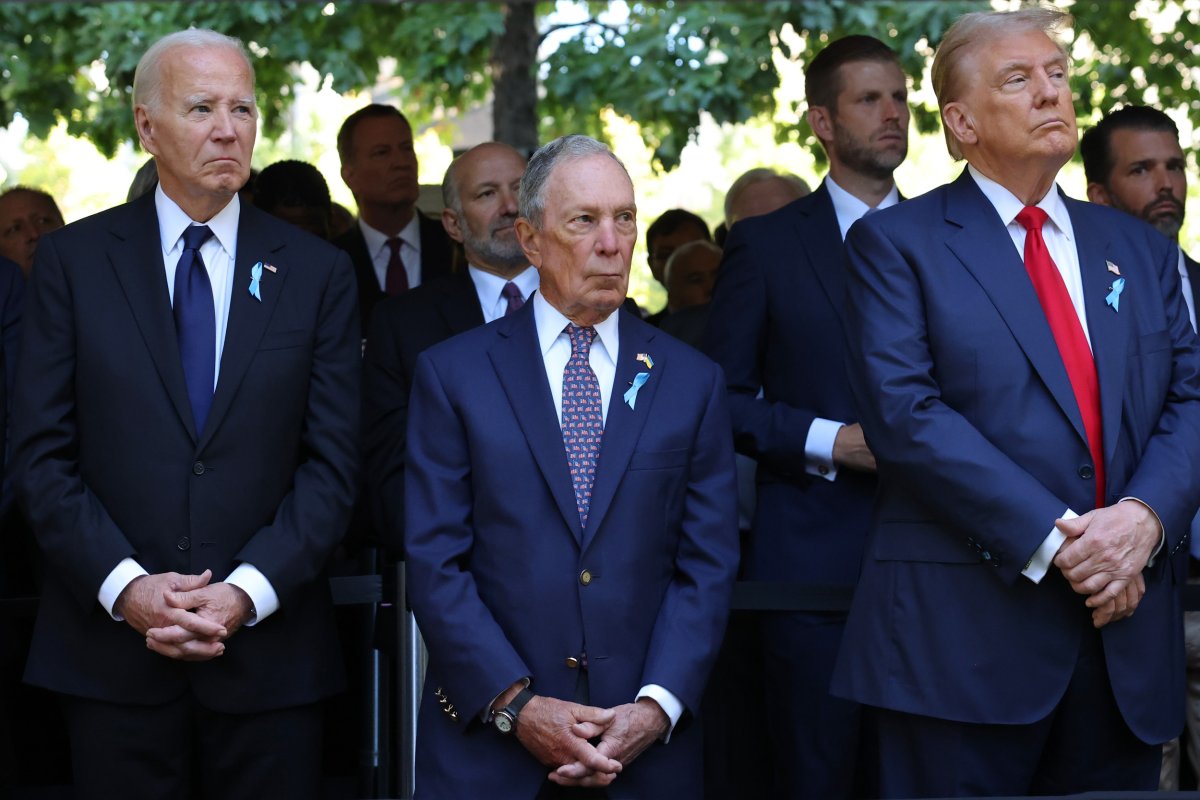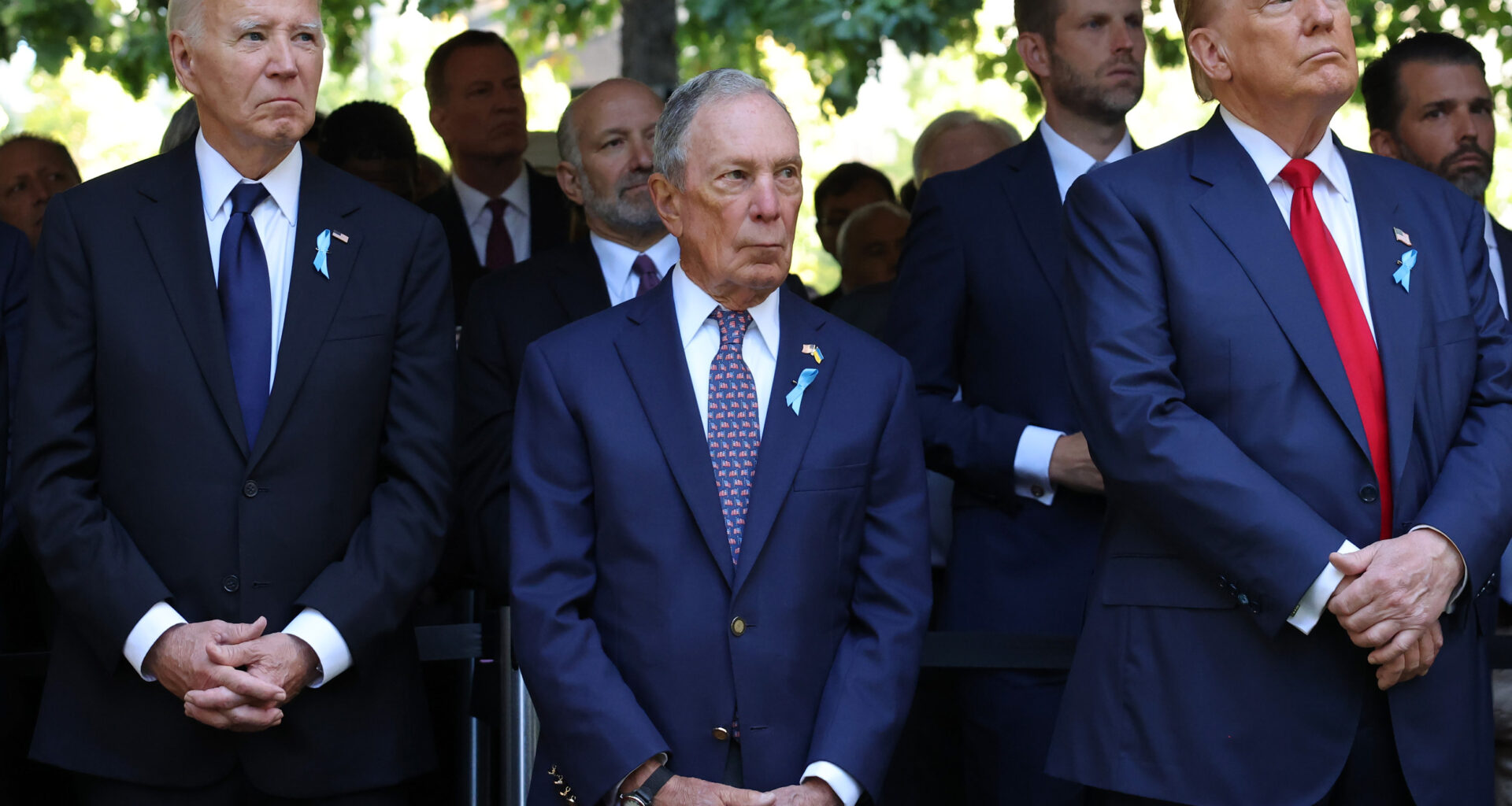Businessman and former New York Mayor Michael Bloomberg announced today that his philanthropy group will make up for U.S. funding to the United Nations climate agency following President Donald Trump‘s decision to pull the U.S. out of the Paris Climate Agreement.
“We are moving forward regardless of what this administration is or is not doing, because we have to,” Gina McCarthy, managing co-chair of the Bloomberg-funded group America Is All In, told Newsweek. “Climate change is a challenge that is existential.”
McCarthy was the first White House national climate adviser under President Joe Biden and administrator of the Environmental Protection Agency under President Barack Obama. America Is All In is a coalition of state, city, business and nonprofit leaders who came together in support of climate action when Trump withdrew the U.S. from the Paris Agreement during his first term in office in 2017.
Then, as now, Bloomberg Philanthropies made up the funding gap for the U.S., which provides roughly a fifth of the budget for the U.N. Framework Convention on Climate Change, or UNFCCC.
“[Michael Bloomberg] is going to continue to have a presence for the United States internationally, so we can follow and provide not just funding, but provide information on how the United States is doing to meet its obligations,” McCarthy said.

Michael Bloomberg, pictured here with former President Joe Biden (left) and President Donald Trump (right) at a 9/11 commemoration ceremony last year in New York, said his philanthropic group will make up for funding to…
Michael Bloomberg, pictured here with former President Joe Biden (left) and President Donald Trump (right) at a 9/11 commemoration ceremony last year in New York, said his philanthropic group will make up for funding to the United Nations climate agency as Trump again withdraws the U.S. from an international climate agreement.
More
Michael Santiago/Getty Images
The Paris Climate Agreement negotiated by the U.N. 10 years ago commits nations to reduce greenhouse gas emissions to levels that will keep long-term global temperatures from rising more than 2 degrees Celsius (3.6 degrees Fahrenheit) above preindustrial levels.
In the final months of his term, Biden set a new goal for the U.S. to meet its commitment by reducing emissions more than 60 percent by 2035. However, Trump has said he will reverse many of Biden’s climate and energy policies, and he began that process with a series of executive orders on his first day in office.
“We will drill, baby, drill,” Trump said in his inaugural address, and his policies closely hew to the wishes of the oil and gas industry, which spent heavily to support his election. However, even Exxon Mobil CEO Darren Woods had advised against another retreat from the Paris Agreement.
An analysis by the independent research firm Rhodium Group estimated that Trump’s policies will drive emissions 24 to 36 percent higher compared to current policy by 2035.
McCarthy emphasized the importance of climate action by governors and mayors in the absence of presidential leadership.
“It’s really important to remember that states and cities have a lot of opportunity to keep pushing forward on climate through rules and regulations and policies, and I fully expect that you’re going to see that,” she said.
Research released last month by the University of Maryland‘s Center for Global Sustainability found that strong action by states and cities could counteract climate rollbacks at the federal level and achieve deep cuts in emissions.
Such action could mean including more state-level renewable and clean electricity targets, ambitious EV sales targets such as California’s clean cars initiative and greater energy efficiency in new buildings.
Nearly 3,000 businesses are part of America Is All In, and McCarthy said business leaders played an important role during Trump’s first presidency when they continued with work to meet corporate climate goals.
“Businesses did continue to step up,” McCarthy said. “They may not be as vocal in doing so, but they certainly recognize that climate has an impact on their businesses, on their workers.”
